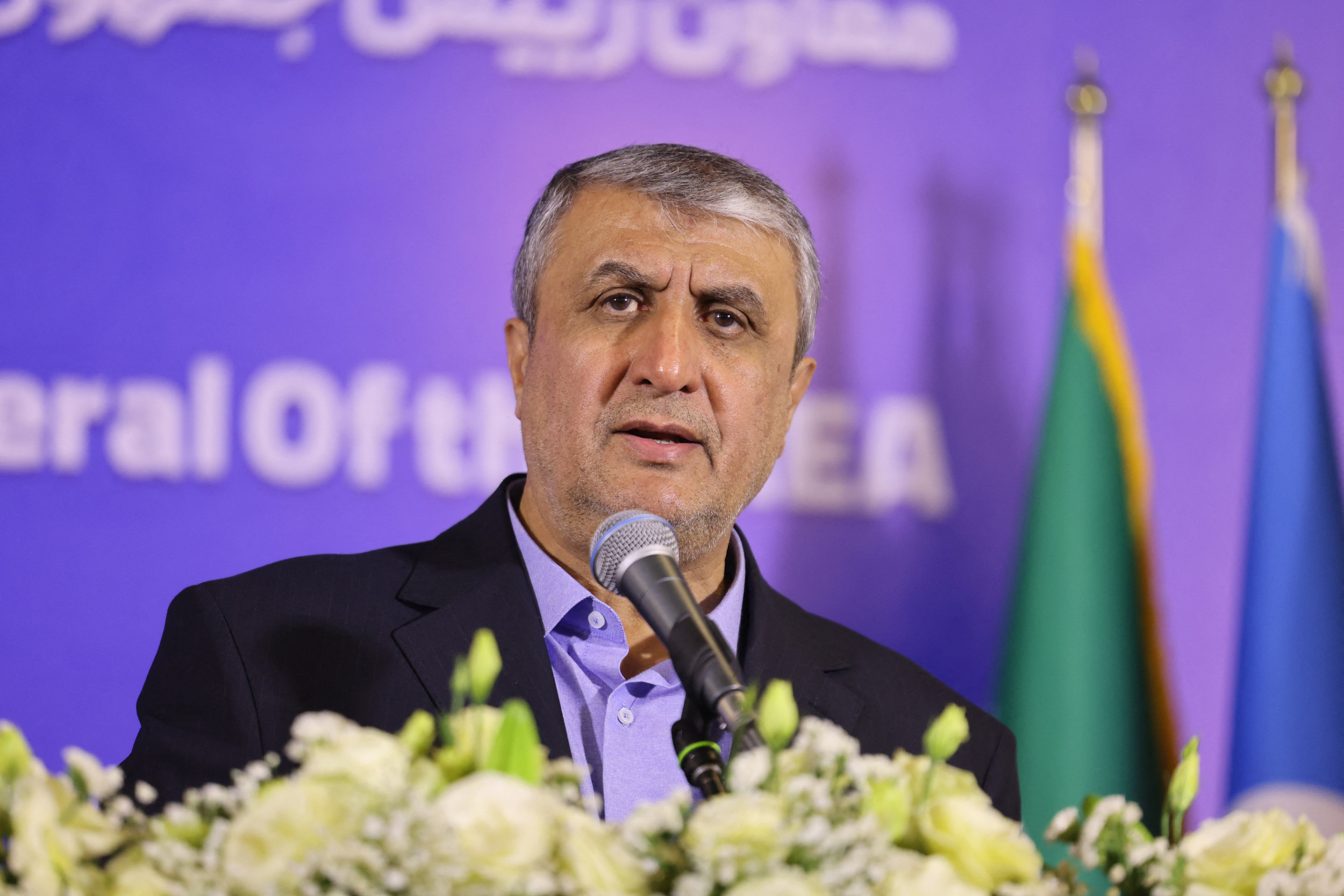Uncommon Knowledge
Newsweek is committed to challenging conventional wisdom and finding connections in the search for common ground.

Iran announced that it will react if the International Atomic Energy Agency (IAEA) passes a resolution against the country, according to a report from Iran’s Fars news agency.
The response, from Iran’s nuclear chief Mohammed Eslami, follows a draft resolution submitted by European nations pressuring Iran to explain the presence of uranium particles at undeclared sites.
“In case of issuing a resolution against Iran in the board of governors and political pressure from the parties, Iran will respond according to the announcement it made to them,” Eslami is quoted as saying by Fars.
Newsweek emailed Eslami via the Atomic Energy Organization of Iran’s office of public relations for further comment.
The dispute and subsequent threat of action concerns Iran’s nuclear program. This program has been a point of contention since the U.S. withdrawal from the Joint Comprehensive Plan of Action (JCPOA) back in 2018.
The IAEA board has not adopted a resolution criticizing Iran since November 2022, at which time the country responded by intensifying its uranium enrichment efforts.
The agreement, initially established to limit Iran’s nuclear capabilities in exchange for sanctions relief, has been on shaky ground as Iran has scaled back its commitments in response to renewed U.S. sanctions.
Now, European countries have drafted a resolution which urges Iran to cooperate with a new IAEA investigation. The investigation investigates traces of uranium found at sites which were not declared to the IAEA agency.
The resolution also addresses recent problems, such as Iran having barred the IAEA uranium-enrichment experts on the inspection teams. The resolution text follows a previous resolution which was passed 18-months-ago that ordered Tehran to comply with the IAEA investigation into uranium traces, as per a report from Reuters.
Tensions in the region have heightened since the outbreak of the war between Israel and Hamas, a group supported by Iran. In April, an Israeli attack on an Iranian consulate in Syria prompted Iran to launch a significant drone and missile attack on Israel.
The IAEA resolution has escalated tensions, with Iran now threating a potential retaliatory measure if the resolution is passed.
This could mean that Iran will reduce its cooperation with the IAEA, which could include limiting access to its nuclear sites.
Britain, France and Germany, known as the E3 are among nations pushing for the IAEA resolution. The U.S. expressed concerns over the resolution, highlighting that it could cause a response from Iran which could include increased nuclear activity. Russia and China opposed the resolution against Iran and were the only nations to do so.
Update, 6/4/24/, 5:57 a.m. ET: This article was updated with new information.
This is a developing story and will be updated.
Newsweek is committed to challenging conventional wisdom and finding connections in the search for common ground.
Newsweek is committed to challenging conventional wisdom and finding connections in the search for common ground.